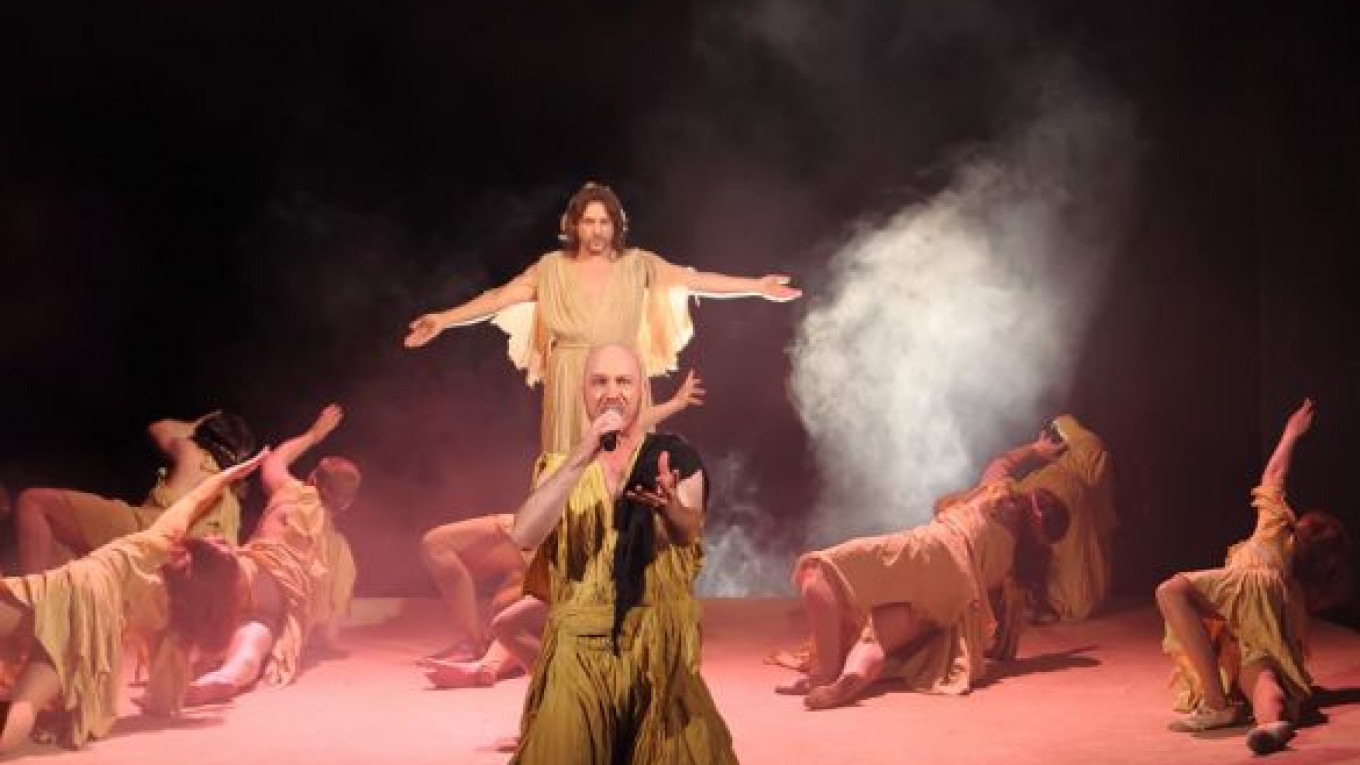The world-famous 1970s musical, "Jesus Christ — Superstar" has survived a public outcry from religious groups in the southern city of Stavropol. The show is to go ahead on June 20, while its cancellation in the nearby city of Pyatigorsk remains firmly in place.
The director of the Stavropol Drama Theater, Yevgeny Lugansk, made a formal decision not to withdraw the performance devised by members of the St. Petersburg Rock Opera Theater.
"What right do I have to cancel someone else's performance, which has already been approved by art councils?" Lugansk questioned RIA Novosti on Tuesday.
"Secondly, I do not want to pass for a narrow-minded man who made such an unfair decision," he said.
Social activists had torn down posters promoting the performance and had even started collecting signatures hoping to submit a petition for its cancellation, according to Komsomolskaya Pravda.
Disgruntled religious groups had the backing of some local officials. Regional deputy Aiydin Shirinov had earlier voiced his support for the protesters, stating Monday: "I myself have not seen this opera, but if my constituents are worried and protest against it, I would support that," RIA Novosti reported.
The controversy even instigated a request from the local Ministry of Culture, Komsomolskaya Pravda reported.
The 1970s rock opera by Andrew Lloyd Webber and Tim Rice is based on the final weeks of Jesus' life, and places a strong emphasis on the character of Judas.
Only about a hundred of the 600 available tickets for the oncoming show have been sold. However, Lugansk has stated that the show will go on, even if the theater only has one audience member. Ticket sales have reportedly been rising slowly.
The following day, on June 21, "Jesus Christ — Superstar" is to stay cancelled in the nearby city of Pyatigorsk. Although no official reason was given in May when the cancellation was first announced, local press have cited church opposition.
This isn't the first time the show has been at the center of controversy: The renowned musical was pulled from a theater in Rostov-on-Don at the end of last September claiming it misrepresented Christ and was labeled a profanation by critics.
In March last year, the musical was cancelled in four out of the five Belarussian cities it was scheduled to be shown in.
Meanwhile, in the Soviet Union, the play was banned on the grounds that it contained religious propaganda. It was staged for the first time in 1990.
Riled protesters took to the streets in Lipetsk this February. Several Orthodox processions took place against the musical, calling it "atheistic." However, the musical went ahead on this occasion despite public anger.
A Message from The Moscow Times:
Dear readers,
We are facing unprecedented challenges. Russia's Prosecutor General's Office has designated The Moscow Times as an "undesirable" organization, criminalizing our work and putting our staff at risk of prosecution. This follows our earlier unjust labeling as a "foreign agent."
These actions are direct attempts to silence independent journalism in Russia. The authorities claim our work "discredits the decisions of the Russian leadership." We see things differently: we strive to provide accurate, unbiased reporting on Russia.
We, the journalists of The Moscow Times, refuse to be silenced. But to continue our work, we need your help.
Your support, no matter how small, makes a world of difference. If you can, please support us monthly starting from just $2. It's quick to set up, and every contribution makes a significant impact.
By supporting The Moscow Times, you're defending open, independent journalism in the face of repression. Thank you for standing with us.
Remind me later.






